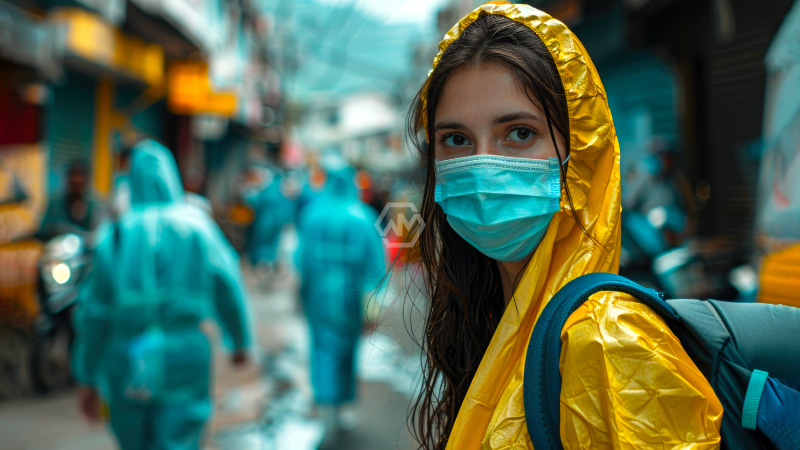- India reports 564 new COVID-19 cases and 7 deaths in 24 hours.
- NB.1.8.1 and LF.7 variants drive the surge, with JN.1 still dominant.
- Centre urges states to ensure medical readiness amid rising hospitalizations.
India is witnessing a concerning uptick in COVID-19 infections, raising fears of a fifth wave. The health ministry has reported 564 new cases within a day, and the active case count has surpassed 4,800.
The World Health Organisation and Indian health experts have identified new Omicron sub-variants, NB.1.8.1 and LF.7, as the likely culprits behind the surge.
New COVID Variants Trigger Alarms Across India: Hospitals Brace for Fifth Wave
After weeks of relatively stable numbers, India’s COVID-19 graph is again on the rise. The Ministry of Health has confirmed a spike primarily linked to the states of Kerala and Maharashtra, which are experiencing rising admissions in hospitals and shortages in emergency resources like oxygen and critical care beds.
India’s healthcare infrastructure, already strained from past waves, is now under renewed pressure. The central government has directed all states and Union Territories to conduct stock checks on oxygen supplies, ventilators, and essential medications, while also enhancing genome sequencing efforts to track virus evolution.
Experts believe this sudden surge is not just seasonal but is also being driven by low public compliance with safety protocols and waning immunity levels. Public health officials are urging vaccination boosters, especially for high-risk groups like seniors and those with comorbidities.
While most infections remain mild to moderate in vaccinated individuals, health authorities are concerned about the vulnerable populations. Quick identification of symptoms such as fever, nasal congestion, chest discomfort, and digestive issues is being emphasized to prevent escalation.
With new variants spreading and hospital resources tightening, India’s readiness for a potential fifth COVID-19 wave hinges on swift public cooperation, renewed precautions, and proactive healthcare response.
“The virus has evolved. The question is, are we ready this time?”
This quote captures the core concern of the article — preparedness in the face of new COVID-19 threats.



